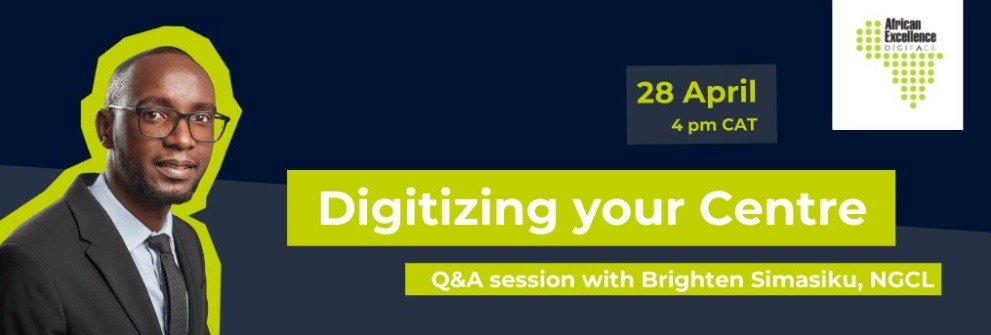
*The information below is a summary (done by Brighten) of the Q&A session we had with him on 28 April 2022*
Click on this link to watch the Zoom recording ( Passcode: zGwa1q=N )
NAMIBIAN-GERMAN CENTRE FOR LOGISTICS SHARED EXPRIENCES AND SUCCESSES
The Namibian-German Centre for Logistics (NGCL) inaugurated on the 7th of May 2009 was established as a partnership between the Namibia University of Science and Technology (NUST) and Flensburg University of Applied Science (FUAS) in Germany. The Centre from its original mandate has established itself as a centre of excellence for logistics and transport education, while driving applied research in the SADC region. The Centre is part of the “African Excellence” initiative funded by the German Academic Exchange Service (DAAD) as part of the “Aktion Afrika” programme of the German Foreign Office. The partnership started with the first phase of funding that ended in 2013. A second phase of funding has been fixed through the DAAD that started in 2014 until 2018. During the 10th DAAD centres of excellence conference held in Berlin, Germany in October 2018, the Centre was amongst the Centres of Excellence picked to benefit from phase-out funding from the 2019-2023.
Academic and Professional Programmes
The Centre following the design of the Master of Logistics and Supply Chain in 2012 and its implementation in 2013, has a total of one hundred and seventy (170) students over nine years (9) years. Over 80 students have successfully graduated programme. Further support is provided to the Faculty of Commerce, Human Sciences and Education and the Department of Marketing and Logistics housing the following programmes:
- Bachelor of Logistics and Supply Chain Management
- Bachelor of Transport Management
- Bachelor of Logistics (Honours)
COVID-19 disruption
Following the global outbreak of COVID-19 and like any other institution, the Centre faced severe challenges. In response the Centre intensified and digitalised it services, particularly the use of Learning Management Systems (LMS) from the main the University and three other institutions, namely, The Chartered Institute of Logistics and Transport UK (CILT UK), Institute of Marketing Management (IMM SA) and BIZZCO (SA). The move benefited students who are able to do their studies anywhere in the world without having to face severe challenges on connectivity.
Information technology an added advantage
Two of Namibia’s leading information technology (IT) service providers, namely Telecom Namibia and Mobile Telecommunications (MTC) provide 95 percent mobile phone network population coverage. Mobile phone subscriptions are recorded at 119.16 per 100 inhabitants. The latest generation DTT standards enable the delivery of audio, video and data services to fixed, portable and mobile devices.
In addition, Namibia has been connected to the West Africa Cable System (WACS) since May 2012. This connection results in increased broadband capacity and accelerate the uptake of internet- based services and internet access in the country. Current international link capacities through the WACS have been recorded at 5 Gigabytes per second. The government network backbone infrastructure has been redesigned and is being upgraded to be able to carry the increased bandwidth capacity of 600 Megabits per second from WACS (Telecom Namibia Holdings Annual Report, 2017/18).
Industry and stakeholders
The Centre’s quest in meeting industry needs has expanded, the Centre has so far managed to apply and secure certification for nine (9) experts (employed by the Centre) in the field of supply chain management, logistics, transport and procurement. The certification is southern African based which is a requirement by qualification authorities including Namibia Qualification Authority (NQA), the certification is for facilitators, accessors and moderators who are involved in research and teaching students in the fields of supply chain management, logistics, transport and procurement.
The Centre secured professional membership status for long serving staff members in the industry and all students graduating in logistics, transport and supply chain management in the country, the Centre has further received benefits to work with the logistics and transport industry to establish a local CILT Office which became operation since February 2022. This has seen numerous stakeholders participate and support the Centre financially.
The Centre engages the industry and stakeholder in several digital and face to face activities, such as Annual Conference, seminars, mini workshops, customized workshops and tailor-made workshops.
In collaboration with local and international renowned stakeholders the Centre publishes the State of Logistics Report. The report is essential part in the efforts to better understand logistics performance in the context of increasing complex supply chains. This further enabled Namibia to join a relatively group of exclusive countries that have established a national assessment of logistics. The 2022 edition will be concluded in December 2022 and will be officially launched in February 2023.
Following the launch of DIGI FACE Project, whose focus is on the following areas,
- Development and set up of business models for long-term sustainability for Centers of Excellence and DIGI-FACE project,
- Development of generic e-learning modules and tools for PhD and research students,
- Capacity building on e-learning tools, procedures and design of new digital training courses.
The Centre has empowered six (6) experts in the categories of multimedia, pedagogical and administrator, the team is dedicated to ensuring the sustainability of DIGI FACE post the funding period. As part of its stakeholder engagement, the Centre utilises the services of sister Centers in the University to cut costs.
You must be logged in to rate posts.



